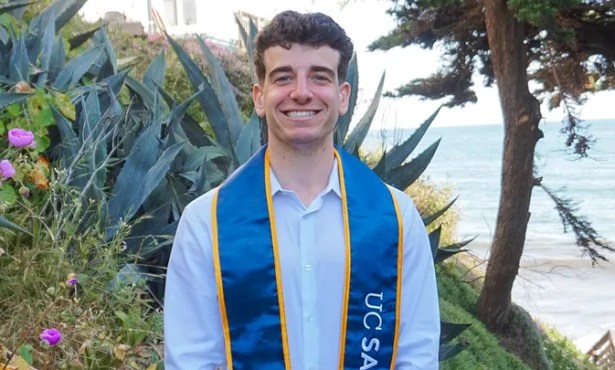What Do You Know, and When Do You Say
Could Germanwings and Isla Vista Have Been Prevented?
An airplane crashes into a mountainside in France killing 150 people aboard. Theories swirl as to why.
The answer, in this case, comes quickly. A psychotic copilot named Andreas Lubitz, with a suicidal compulsion, committed mass homicide.
Immediately, feverish discussions begin as to who knew what, where, and when about this killer’s mental state.

The question that most people asked is: Who had a duty to report that the pilot was unfit to fly, and when? The mental-health professionals who evaluated the pilot, as well as doctors, flight evaluators, the airlines, and fellow pilots and others in the professional chain of command who had knowledge of his mental state had a clear legal duty to warn those who could have grounded Lubitz.
Eventually, lawsuits will sort out who should share the blame for not preventing Lubitz from flying.
But what about family members, friends, teachers, girlfriends, and others who had no mandatory duty to report that he was suicidal and yet may have known or suspected he was a danger to himself and others?
They had an ethical duty to report to someone who had the authority to ground Lubitz.
A number of news media outlets reported that one of Lubitz’s girlfriends said the pilot “would wake up in the middle of the night screaming, ‘We’re crashing.’” That girlfriend also said the pilot vowed, “One day, I will do something that will change the whole system, and then all will know my name and remember it.”
You think she would have asked, “And what would that be Andreas?” He might have lied and said it was idle chatter. But maybe he would have told the truth. But even if she didn’t ask another question, she should have told someone in authority about the pilot’s bizarre statement.
Would her reporting of what the pilot said have invaded his privacy? Yes, it would have, but there are times when “sticking your nose in someone else’s business may be the right thing to do.”
As parents, friends, or coworkers, we may at some point witness behavior that clearly indicates to us that someone we know is a danger to himself and/or to others. Should we report it?
First, we should discuss what we have seen and heard with someone whose judgment we trust. If that person confirms that what we have witnessed is potentially dangerous behavior, we should take the next step — attempting to convince the person in question to seek psychological help. If they refuse, I think it’s our ethical duty, as Orwellian as it sounds, to report our observations to the mental health or law enforcement authorities.
You may have a chance to save lives. I say “may” because unfortunately many experts who have studied mass murders have reached the conclusion that it is hard to predict when a person who has previously exhibited psychological problems, and even committed minor crimes, will cross the line to murderous acts.
Our own community experienced the results of the unpredictability of what a mentally ill person may do when a 22-year-old deranged killer, Elliot Rodger, murdered six students in cold blood in Isla Vista.
Could someone, whether they had an official duty or not, have taken any action that might have prevented this horrific rampage? It’s difficult to know.
The most comprehensive source of information readily available about Rodger is the February 2015 Santa Barbara County Sheriff’s Office report entitled Isla Vista Mass Murder — Investigative Summary.
I read the entire investigative summary. The report does not hold anyone accountable for not reporting Rodger as a danger to himself or others. It does, however, go into detail about Rodger’s abnormal behavior as a teenager, his constant use of psychotropic drugs, and his numerous interactions with mental health workers. It appears that at least on one occasion in his troubled youth, someone suggested that he “enter a residential treatment facility.” It appears that Rodger and his family did not take this suggestion.
Rodger’s highly abnormal behavior continued through his teenage years. Yet no one, not his parents, school officials, mental health professionals, or others who worked with him ever decided to seek to have Rodger held, under California Welfare and Institutions Code sections 5150(a), for 72 hours, which would have allowed for “assessment, evaluation, and crisis intervention or placement … in a facility designed by the county for evaluation and treatment” by professional, independent mental health professionals.
Again, would even this type of close professional scrutiny of Rodger have predicted his future acts? While we may speculate that this intense evaluation might have identified how seriously ill he was, we’ll never know.
So where does this leave us when, not as professionals, we think someone we know has exhibited behavior or said things that could be reasonably interpreted as dangerous to himself and or others?
There is no one answer that fits all situations.
It appears that almost no one can predict when and where abnormal behavior will morph into a murderous act, and I’m sure that reality is of little comfort to the many family members and others whose hearts and minds are tortured as to what they might have done differently.
Benjamin Bycel is an attorney and writer. He was the founding executive director of the Los Angeles Ethics Commission and of the newly reconstituted Connecticut Ethics office. He serves as an expert witness in cases dealing with political and legal ethics. If you have an ethics question, send it to streetethics@independent.com.



